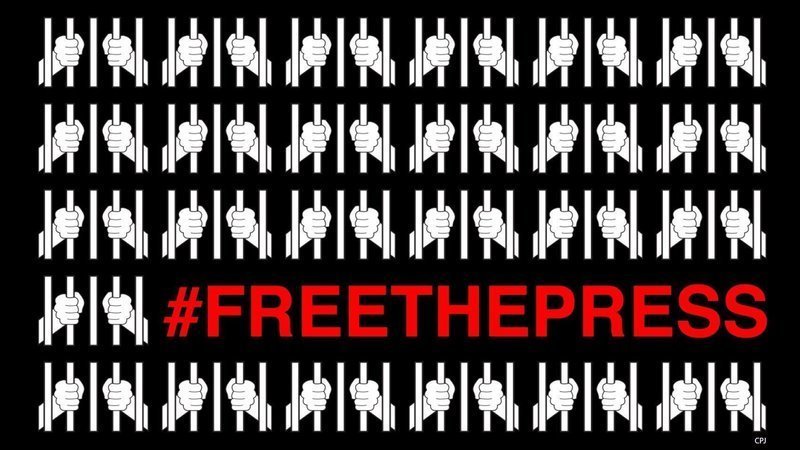Source: European Center for Press and Media Freedom, 7 April 2020
Marc Pierini, former EU Ambassador to Turkey (2006-2011) initiated an op-ed on the draft amnesty law affecting political prisoners including journalists in Turkey. The op-ed is co-signed by Rebecca Harms, expert on Turkey and former Green Member of the European Parliament.
“The COVID-19 pandemic is affecting the entire world, with more than one million infected people and more than 50,000 dead. Everywhere, extraordinary measures are taken on daily basis. They concern the medical aspects, as well as the economic and financial aspects and the pandemic. People are often confined, borders are closed, and industrial production is at a standstill in many sectors.
Everywhere, special measures are taken in favour of vulnerable populations. Prisoners are under great dangers. In several countries around the world, measures such as early liberations and release pending trial are being taken.
In Turkey, a draft law is under discussion at the Grand National Assembly in order to free up to 100,000 prisoners out of a total of about 300,000 in order to limit the expansion of the COVID-19 virus. This is a welcome measure, in the context of a wider national strategy. The draft law was adopted at committee level on April 4 and is now before the plenary.
However, as it stands today, the draft law is profoundly unjust and even illegal as it excludes all prisoners of opinion and those accused of terrorism, often without evidence. Citizens like Ahmet Altan, Selahattin Demirtaş and Osman Kavala, as well as lawyers, journalists and elected mayors should all benefit from this measure.
In Turkey, many people are in provisional detention without tangible evidence against them and wait for months, if not years, to be indicted, often for ungrounded motives. The case of Osman Kavala is emblematic in this respect. In December 2019, the European Court of Human Rights condemned Turkey for his abusive detention, with obvious political motives. The ECtHR’s response to Turkey’s appeal of this judgment is expected. Now, Turkish prosecutors are trying to invent even less grounded accusations in orde rto keep him in jail. Others are condemned to heavy jail terms for having criticised President Erdoğan, like Ahmet Altan, or to have challenged him in elections, like Selahattin Demirtaş.
On April 3, former President Abdullah Gül declared: “I believe that if the planned [law] regulation on in the [penal] execution bill includes thought crimes with no hate, violence or terror [offenses], as well as media workers, it will address the feelings of equality and justice among the public during these tough times that we all are going through. […] It is an obvious necessity for the regulation to include not only the convicted but also the arrested [with pending trials] in order to go through the current virus threat with minimum pain and loss.”
On April 6, Dunja Mijatovic, the Council of Europe’s Human Rights Commission, said “I call on Council of Europe member states to safeguard the rights and health of all persons in prison during the COVID-19 pandemic. Convicted prisoners and persons on remand are among those most vulnerable to viral contagion as they are held in a high-risk environment […] exposing prisoners to greater health risks.”
During its extraordinary meeting on March 26 about COVID-19, the G20 heads of state and government stated their collective willingness to defend human lives. During that summit, Turkey called for a vast international cooperation effort. Turkey’s leaders know the extent to which the health sector is, at this point, facing great difficulties in confronting this unknown and devastating virus. All precautionary measures must be taken. Early release of prisoners and release pending trial are part of such measures.
Excluding prisoners of opinion (and those who no legal reason to be detained) from the scope of the law on anticipated liberation linked to the pandemics would amount to condemn these prisoners to face an extremely high, potentially deadly, risk. This is why I call on Turkey’s leaders and the judiciary authorities who have powers in this respect to include journalists, lawyers, elected people, Ahmet Altan, Selahattin Demirtaş and Osman Kavala in the amnesty currently under consideration. In doing so, Turkey would show compassion.”

